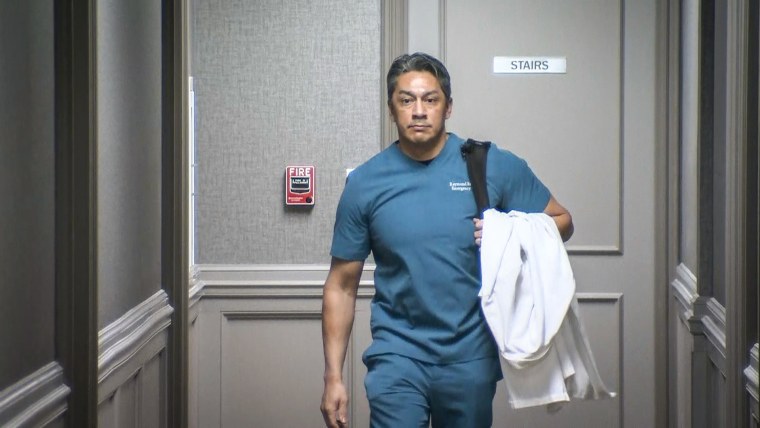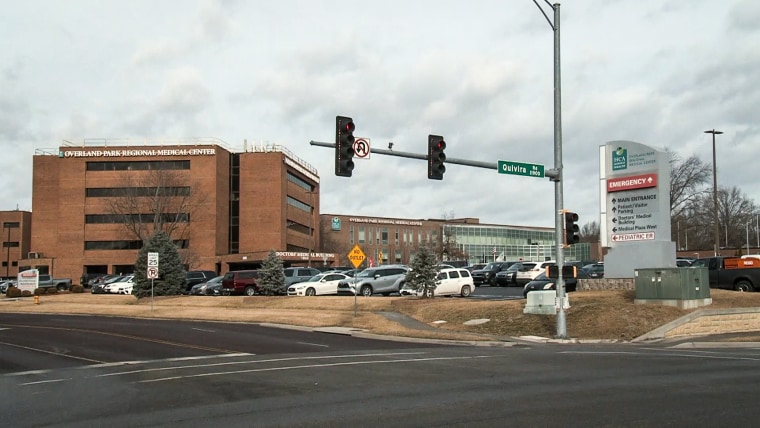“Doctor fired from ER warns about effect of for-profit firms on U.S. health care”, NBC News
By
A doctor fired after criticizing care at the ER he ran said execs are focused on the financial outcome, “and the outcome is ‘Hey, we’re making money.’”
Patients seeking emergency treatment at the busy Overland Park Regional Medical Center in Kansas near Kansas City, Missouri, didn’t know their safety was potentially at risk. But the medical director of the emergency department saw the danger in 2012 and for years urged his bosses to address it by adding staff members.
What happened to the medical director, a former Army doctor named Ray Brovont, isn’t an anomaly, some physicians say. It is a growing problem as more emergency departments are staffed by for-profit companies. A laser focus on profits in health care can imperil patients, they say, but when some doctors have questioned the practices, they have been let go. Physicians who remain employed see that speaking out can put their careers on the line.
Today, an estimated 40-plus percent of the country’s hospital emergency departments are overseen by for-profit health carestaffing companies owned by private equity firms, academic research, regulatory filings and internal documents show. Two of the largest, according to their websites and news releases, are Envision Healthcare, owned by KKR, and TeamHealth, of the Blackstone Group. EmCare, the health care staffing company that managed Brovont, is part of Envision.

Private equity firms have taken over a broad swath of health care entities in recent years. They use large amounts of debt to acquire companies, aiming to increase their profits quickly so they can resell them at gains in a few years.
There’s a reason private equity firms have invested in companies staffing hospital emergency departments, said Richard M. Scheffler, a professor of health economics and public policy at the University of California, Berkeley.
“The money in the hospital is in the ER,” he said. “It is the biggest net generator and a huge profit center for almost all hospitals.” The problem, he said, is that “ER doctors are being told how to practice medicine” by financial managers.
Brovont, the fired Overland Park emergency room doctor, agreed.
“These administrators who make these changes and implement these policies don’t feel the downstream effects of their policy changes,” he said. “They look at the outcome, and the outcome is ‘Hey, we’re making money.’”
Three places at once
As a former military doctor who saw combat in Iraq, Brovont knew how to solve problems quickly. He took that approach to leading the emergency department at Overland Park.
“The goal was to identify an issue before there was a bad outcome,” he said.
One bad outcome Brovont hoped to avoid was related to “code blues,” urgent calls to help Overland Park patients whose hearts had stopped beating or who were no longer breathing. After the HCA-owned hospital doubled its capacity to 343 beds and added a separate pediatric emergency room in 2014, the facility’s code blue policy became unsafe for patients, Brovont and his 18 fellow ER doctors concluded. It required an emergency department doctor to attend to code blues elsewhere in the hospital, which meant leaving the emergency room without a physician.
“My physicians were being asked to be in three places at once,” Brovont said.
Staffing issues had been a concern for Brovont since he joined the hospital in 2012. He had spoken up about them early on, according to documents in a lawsuit he filed alleging wrongful discharge, but got nowhere. The expansion of the hospital made the problem worse and brought the matter to a head.

Staffing at the hospital was handled by EmCare, a health care staffing company owned since 2011 by the private equity firm Clayton, Dubilier & Rice. The firm exited its investment in EmCare in March 2015 after the company issued stock to the public, but EmCare directors affiliated with Clayton, Dubilier & Rice remained on EmCare’s board into 2017. EmCare became Envision Healthcare and was bought by a different private equity company, KKR, in 2018.
In 2015 and 2016, frustrated by the inaction on the code blue policy, Brovont took his and his colleagues’ concerns to Dr. Patrick McHugh, his superior at EmCare. Federal law required Level II trauma centers like Overland Park to make a physician available 24/7 in the emergency department to examine incoming patients, Brovont told McHugh.
Hiring an additional doctor would solve the problem, but that didn’t happen. McHugh acknowledged to Brovont that the decision was financially motivated, court records show, and said in an email to the physicians: “Profits are in everyone’s best interest.”
Continuing to argue for a change in the policy, Brovont sent a memo to management outlining his unit’s fears; he was fired six weeks later, in January 2017. “There is a responsibility as the corporate representative to support the corporation’s objectives,” McHugh told him, according to court filings.
In addition, Brovont was barred from working at nearby hospitals whose emergency departments EmCare oversaw. Because he was an independent contractor for EmCare and not an employee of the hospital, there was no tribunal to which he could petition against his dismissal.
Brovont, who hasn’t spoken out about his case until now, sued EmCare for “wrongful discharge in violation of public policy” in 2017. A jury awarded him $29 million, including $20 million in punitive damages, which was reduced to $26 million on appeal. That ruling was final.
A spokeswoman for Envision, EmCare’s parent, said in a statement that the company complies “with state laws and operates with high ethical standards that put patients’ health and safety first.”
“Envision clinicians, like all clinicians, exercise their independent judgment to provide quality, compassionate, clinically appropriate care based on their patients’ unique needs,” it said. “The concern raised by Dr. Brovont was related to a hospital policy, not an Envision policy, and predates Envision’s current leadership team.”
McHugh didn’t respond to an email and a phone message seeking comment. He no longer works for EmCare. Overland Park Medical Center wasn’t a party to Brovont’s litigation. Clayton, Dubilier & Rice didn’t respond to a request for comment.
